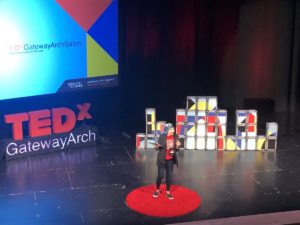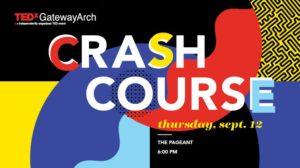TEDxStLouis Rewind: Amy Hunter on Lucky Zip Codes
In this 2016 talk from the TEDxStLouis archive Amy Hunter, the Director of Racial Justice for YWCA Metro St. Louis, talks about economic realities and unexamined mindsets that create social disparities and inform the Black experience.
“So, you have been in St. Louis for 48 hours, someone will inevitably ask what high school did attended to,” says Amy Hunter as she speaks about Lucky Zip codes. How are our lives shaped by the zip code we’re born into?
Who gets to be lucky? Does it matter if I live in 63103, 63130, 63112 or 63121? Speaking as the Director of Racial Justice for YWCA Metro St. Louis, Amy Hunter’s responsibility was to work hard in eliminating racism.
Zip Codes Mean Something
Where is the best school district? Where should I live? What zip code you are in does matter; Amy says.
Zip code 63121 is Normandy, it is an under resourced, under credited school district while Ladue bearing zip code 63124 have schools with abundant resources. For her this is like the sky and river in a parallel universe.
Inter-Generational Wealth
According to her, you cannot be rich even if you work hard. You need to be placed in a lucky zip code.
Historical events played a major role in inter-generational wealth and who was placed in lucky zip codes. Bacon’s Rebellion, G.I.Bill, V.A.Loans helped White Americans move from poor, working class to middle classes with land ownership distributed. Sadly, African-Americans did not get access even if they have served their country, she lamented.
Black People Couldn’t Purchase a House in Clayton 50 Years Ago
“If I had purchased a house in Clayton 50 years ago for US$ 20,000 it will be about 400,000-800,000 dollars today. Great investment isn’t it? But as an African American I couldn’t buy a house in Clayton 50 years ago as it was illegal. Even if the racial covenants were abolished, a realtor will lose his license if he has sold a land to an African American. This was mentioned even in some deeds,” she portrayed the ugly history about lucky codes.
This didn’t stop in housing but went to policing, and even to the education system.
Cognitive Dissonance Perpetuates Prejudicial Views
If you think that poor children are not working hard enough or if a police officer stops someone you come to think that person has done something wrong, then you are distant in your thinking.
“Cognitive Dissonance is something that happens to us. But if we are to eliminate racism, we should have the same feeling of falling in love. In love we would run to each other to solve a problem, or we would try to look for ways to be really close to figure this out with one another,” she adds.
Fictive Kinship
People who are not biologically related to you but you treat them like kin, that’s what Amy calls fictive kinship. This makes one share elements such as pride and shame. She believes expanding this quality can bring a solution to the problem very much present in St. Louis and even globally.
“People will not give much thought if I say fifty percent of African American boys will not graduate high school. But what if I tell that 50 percent of white boys in Clayton High School will not graduate high school? That will make us do something.”
St. Louis Geared for Change, No More Lucky Zip Codes
We need to see where we are today and where we are likely to be moving forward. The intersectionality between our zip codes and our humanity are connected. We are always connected.
For Amy, St. Louis needs to look inward after the events in Ferguson.
“We are the right people to make a change in St. Louis. We can create an equitable society where there are no lucky zip codes. If someone comes to town asking for a where should I live for a really good school district.
“We should be able to say that all our schools good and all of our children are doing well. There are no lucky zip codes here,” Amy says.



For clarification, I didn’t say you couldn’t get rich if you work hard. I said everyone that works hard isn’t rich.